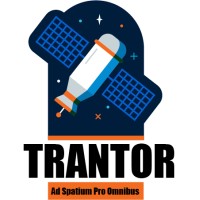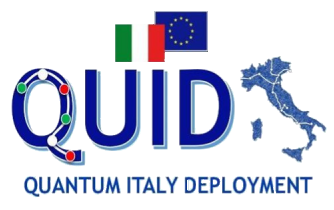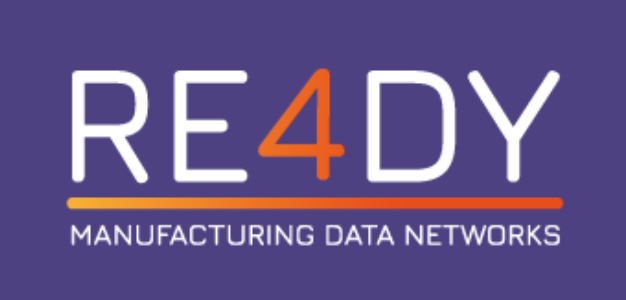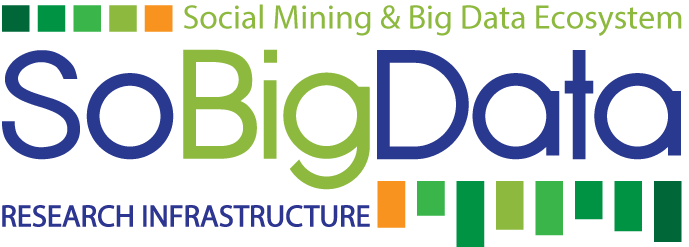To help European cybersecurity companies position themselves on the market and be recognized as European, the European Cyber Security Organisation (ECSO) has initiated the Cybersecurity Made in Europe Label. This initiative involves introducing an industry-driven quality label, designed to promote European cybersecurity companies and increase their visibility on the European and on the global market. The Label will contribute strongly toward a stronger vision of a cyber-secure digital Europe.
1 Aprile 2024 – 31 marzo 2029
DEDUCE aims to revolutionize content moderation on online platforms by addressing current challenges through a science-driven and user-centered approach. The main goal is to move beyond the current intuitive and generic practices, transforming moderation from an art to a science. This change is motivated by the awareness of user diversity and the need for more effective and targeted moderation interventions.
January 1st, 2023 – December 31, 2026
The Internet of Everything has led to a surge in connected devices, resulting in the generation of a huge amount of data. With the support of the Marie Skłodowska Curie Actions programme, the DUCA project aims to provide a comprehensive framework to address the growing concerns around data privacy and protection. Its goal is to empower European citizens and organisations to take control of their data, ensuring confidentiality and personal data protection. DUCA’s framework comprises a set of security and privacy-enhancing solutions, which will be platform-independent to enable compatibility with various architectures and deployment models. The project has identified three use cases: smart energy, usage control for Big Data and artificial intelligence, and collaborative mobility.
January 1st, 2023 – December 31, 2026
SYNAPSE aims to design, develop & deliver an Integrated Cyber Security Risk & Resilience Management Platform, with holistic Situational Awareness, Incident Response & Preparedness capabilities.
November 1st, 2023 – October 30, 2026
Cloud-based services have grown from basic computing services to complex ecosystems, comprising (virtual) infrastructure, business processes and application code. These advanced services also increasingly leverage the usage of Artificial Intelligence, including Machine Learning or Natural Language Processing techniques, raising the complexity even higher. Due to the cascade of dependencies among the different products and services, the need arose to bring more agility to the certification process of cloud-based services, e.g., using continuous monitoring and assessment, as evidenced by references to it in the certifications of the EU Cybersecurity Act (EU CSA). To transform the continuous assessment and certification concept into the complete realization of a Certification-as-a-Service (CaaS), several challenges need to be solved. The design and implementation of the EMERALD CaaS solution leverages the H2020 project MEDINA’s outcomes and advances them to TRL 7 in the EMERALD core. Two PoCs will be provided, one for composite certification and one for mapping requirements to upcoming AI certification schemes. EMERALD will pave the road towards CaaS for continuous certification of harmonized cybersecurity schemes.
01 Settembre 2022 – 31 Dicembre 2025
The digital infrastructures research community continues to face numerous new challenges towards the design of the Next Generation Internet. This is an extremely complex ecosystem encompassing communication, networking, data-management and data-intelligence issues, supported by established and emerging technologies such as IT, 5/6G, cloud-to-edge computing. Experimentally-driven research is becoming worldwide a de-facto standard, which has to be supported by large-scale research infrastructures to make results trusted, repeatable and accessible to the research communities. SLICES-RI (Research Infrastructure), which was recently included in the 2021 ESFRI roadmap, aims to answer these problems by building a large infrastructure needed for the experimental research on various aspects of distributed computing, networking, IoT and 5/6G networks. Based on the two preceding projects within SLICES-RI, SLICES-DS (Design Study) and SLICES-SC (Starting Community), the SLICES-PP (Preparatory Phase) project will validate the requirements to engage into the implementation phase of the RI lifecycle.

December 1st, 2021 – November 30, 2025
The aim of HPCQS is to prepare European research, industry and society for the use and federated operation of quantum computers and simulators to overcome the most difficult computational challenges.

January 1st, 2023 – December 31, 2025
The 6Green project aims to conceive, design, and realise an innovative service-based and holistic ecosystem, able to extend “the communication infrastructure into a sustainable, interconnected, greener end-to-end intercompute system” and promote energy efficiency across the whole 5/6G value-chain. The ultimate objective is to enable and to foster 5/6G networks and vertical applications reducing their carbon footprint by a factor of 10 or more.

January 1st, 2023 – December 31, 2025
The EDGELESS project aims to leverage the serverless concept across all levels of the edge-cloud continuum to fully benefit from diversified and decentralized computational resources available on-demand close to where data is produced or consumed. In particular, we aim to realize efficient and transparent horizontal pooling of resources on edge nodes with limited capabilities or specialized hardware, seamlessly integrated with cloud resources, which represents a huge step forward compared to today’s vertical offloading solutions.

January 1st, 2023 – December 31, 2025
SuperCyberKids, an Erasmus+ project co-funded by the European community, aims to design and implement an educational ecosystem on cybersecurity for teachers and pupils aged 8 to 13. The content will be available in a gamification platform, which will increase motivation and engagement during the learning process. The overall project approach is based on the delivery of the two main outputs: the educational ecosystem and related implementation guidelines. Four pilot projects are planned in four different languages (at the European level in English and in local languages in Italy, Estonia, Germany) to test the results. This will lead to the development of a handbook of best practices on cybersecurity education in schools, including recommendations for researchers, school leaders and teachers, parents, game developers, and instructional designers, as well as recommendations addressed to policy makers and relevant regulators and institutions in cybersecurity education.

TRANTOR – 5G+ evoluTion to mutioRbitAl multibaNd neTwORks
January 1st, 2023 – December 31, 2025
5G mobile networks will be soon fully available, handling all types of applications and providing services to massive number of users. In this complex and dynamic network ecosystem, an optimized end-to-end satellite support is key to manage requirements imposed by multiple vertical industries requiring full global connectivity. The European space sector acknowledged this as a key opportunity to expand its business towards the massive deployment of broadband services, what resulted in standardization efforts to adapt 5G to satellite needs. In this context, the aim of TRANTOR is to perform a significant step forward by paving the path for the 5G NTN evolution towards 6G. To do so, TRANTOR targets the in-orbit validation of a complete satellite value chain involving an automated management of satellite resources across multiple bands, satellites, and orbits, and a converged radio access network.

October 1st, 2022 – September 30, 2025
SoBigData RI, with its tools and services, empowers researchers and innovators through a platform for the design and execution of large-scale data science and social mining experiments, open to users with diverse backgrounds, accessible on cloud (aligned with EOSC guidelines), and also exploiting supercomputing facilities. SoBigData RI will render social mining experiments more efficiently designed, adjusted, and repeatable by non-data scientists’ domain experts by pushing the FAIR (Findable, Accessible, Interoperable) and FACT (Fair, Accountable, Confidential and Transparent) principles. SoBigData RI will orient resources from multiple perspectives: e-infrastructures and online services developers; big data analytics and AI; complex systems focussed on modelling social phenomena; ELSEC (Ethical, Legal, SocioEconomic and Cultural) aspects of data protection (as defined by the HLEG-AI); privacy-preserving techniques. SoBigData RI PPP will move our RI forward from the simple awareness of ethical and legal challenges in social mining to the development of concrete tools that operationalize ethics with value-sensitive design, incorporating values and norms for privacy protection, fairness, transparency, and pluralism.

January 1st, 2023 – June 30, 2025
The QUID (Quantum Italy Deployment) project has the ambitious goal of starting the process of implementing the Quantum Communication Infrastructure (QCI) in Italy. The project involves the installation of systems and networks on the national territory to test quantum communication technologies, in particular quantum cryptographic key distribution (QKD), in order to integrate this technology with the existing fiber optic network, dedicated to telecommunications.

June 1st, 2022 – May 31, 2025
RE4DY mission is to demonstrate that the European industry can jointly build unique data-driven digital value networks 4.0 to sustain competitive advantages through digital continuity and sovereign data spaces across all phases of product and process lifecycle, proposing Data as a Product core concept to facilitate the implementation of digital continuity across digital threads, data spaces, digital twin workflows and AI/ML/Data pipelines. This concept leverages resiliency on top of advanced manufacturing digital processes and value ecosystems supporting the development and implementation of digital continuity, so distributed data management solutions implemented to deal with factory resiliency can be immediately and seamlessly reused to enhance connected factory and value network level processes.

January 1st, 2020 – December 31, 2024
SoBigData ++ is the European project that implements of the previous SoBigData Project (2015-2019). The project aims to establish a distributed, pan-European, multidisciplinary research infrastructure for the analysis of big social data, while supporting the consolidation of an interdisciplinary European research community aimed at using social mining and big data to understand the complexity of our contemporary, now globally interconnected society.